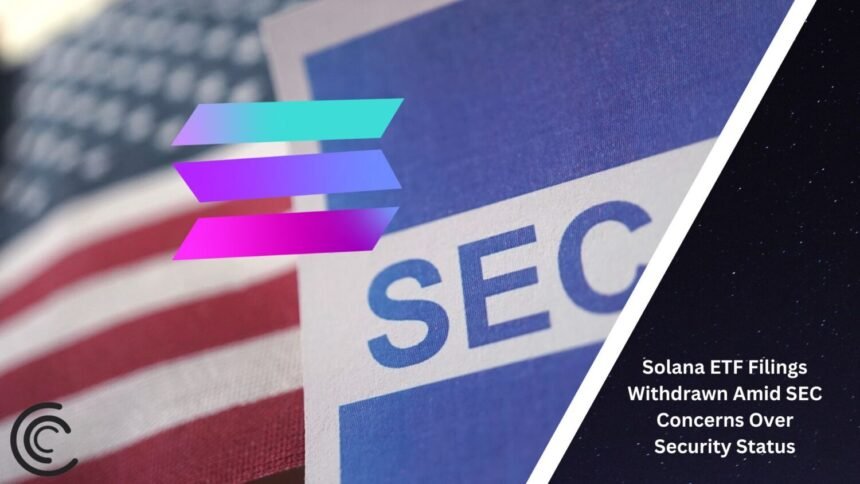Key Takeaways:
- SEC raised concerns about Solana’s potential status as a security, leading to the withdrawal of key ETF filings
- Experts doubt the approval of Solana ETFs under the current administration, with potential reconsideration possibly pushed to 2025.
In a recent development, the U.S. Securities and Exchange Commission (SEC) held discussions with potential Solana ETF issuers, raising concerns about Solana‘s (SOL) classification as a security. This led to the withdrawal of 19b-4 filings from the Cboe BZX exchange, pausing the approval process for Solana-based exchange-traded funds (ETFs).
The SEC’s concerns centered on whether Solana qualifies as a security under U.S. law, a classification that could significantly complicate the approval process for any Solana-based financial products.
These concerns prompted an agreement among ETF issuers not to file forms with the Federal Register, effectively avoiding immediate pressure on the SEC to make a decision regarding these ETFs.
The withdrawal of the 19b-4 filings, which are crucial for outlining the requirements and disclosures necessary for listing an ETF, has put a temporary halt to the process. Notably, these filings are essential for qualifying the S-1 registration statements, which would enable the ETFs to go effective and be listed on a stock exchange.
VanEck’s S-1 filing for a Solana ETF remains active on the SEC’s EDGAR database, indicating continued interest. However, 21Shares’ filing has become less visible, suggesting a more cautious approach in response to the SEC’s stance.
The likelihood of Solana ETFs being approved under the current administration remains low, with experts speculating that approval may not come until 2025, if at all. Nate Geraci, President of the ETF Store, expressed doubts about the approval happening anytime soon, given the current regulatory environment.
This development is not entirely surprising, as the SEC has previously labeled Solana as a security in multiple court filings. The recent discussions and subsequent filings withdrawal reflect the agency’s ongoing caution and regulatory scrutiny of digital assets.
In contrast, peer cryptocurrencies like Bitcoin (BTC) and Ethereum (ETH) have already seen ETF approvals, further highlighting the challenges Solana faces in gaining similar approval.
Despite the setback, there remains a possibility of new filings or amendments to the 19b-4s in the future. These filings could present a stronger argument that Solana is not a security, potentially paving the way for ETF approval.
The SEC’s lawsuit against Ripple, which provided XRP with legal clarity regarding its non-security status in secondary market sales, offers some hope for Solana and other altcoins facing similar regulatory hurdles.



